Laurent Gbagbo: Last-ditch appeal keeps Ivory Coast ex-president behind bars
- Published
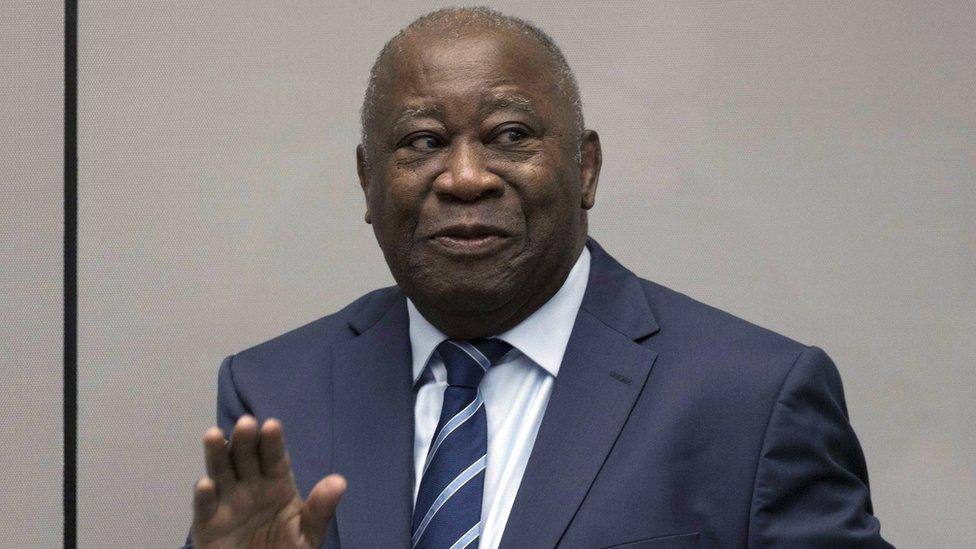
Laurent Gbagbo was acquitted on charges of crimes against humanity on Tuesday
Former Ivory Coast President Laurent Gbagbo will stay behind bars after prosecutors appealed against his acquittal on charges of crimes against humanity.
The International Criminal Court (ICC) in The Hague acquitted him on Tuesday and ordered his immediate release.
But on Wednesday prosecutors challenged the decision to release him, arguing that Mr Gbagbo might abscond.
They said he might not appear in court if his acquittal were to be overturned.
Mr Gbagbo had been charged with crimes against humanity in connection with violence following a disputed 2010 election that left 3,000 dead and 500,000 displaced.
He was captured in 2011 in a presidential palace bunker by UN and French-backed forces supporting his rival, Alassane Ouattara.
He is the first former head of state to go on trial at the ICC.
"Pending the decision of the appeals chamber on this prosecutor's request [Mr Gbagbo] shall remain in ICC custody," a spokesman for the court said in a statement.
"There is a concrete risk that, once released, the accused will not appear for the continuation of the proceeding," prosecutors wrote in a filing.
A ruling on their appeal is expected on Thursday.
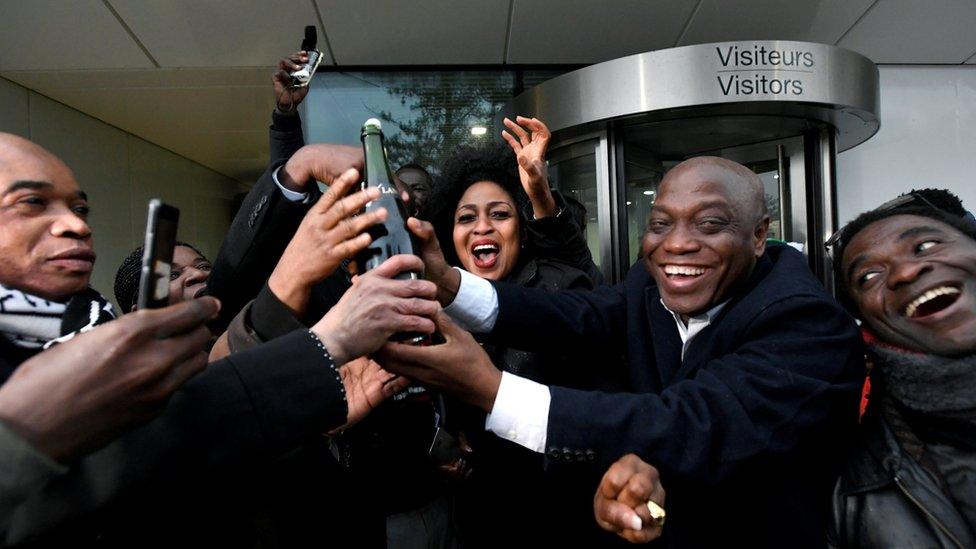
Mr Gbagbo's acquittal sparked celebrations outside the court
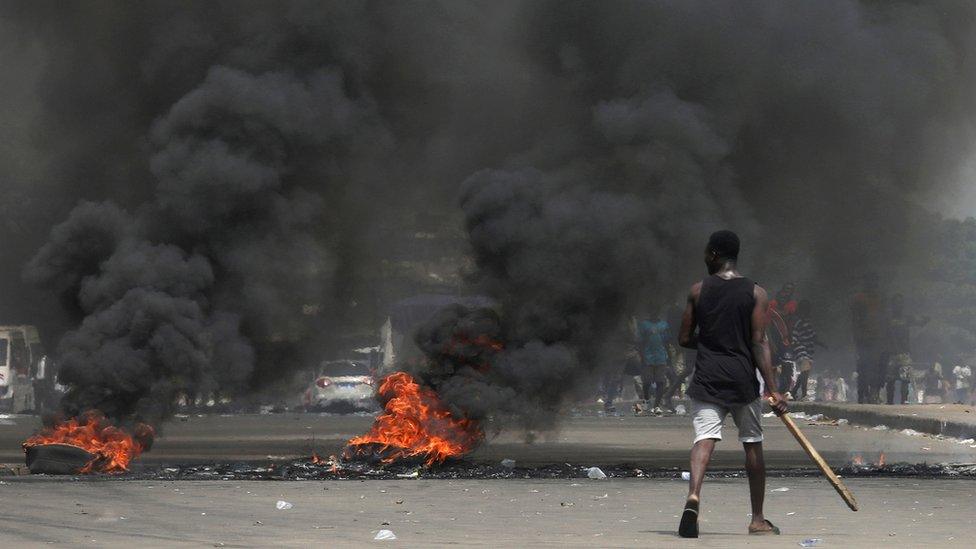
But it led to protests from those who oppose the ex-president
What was Mr Gbagbo accused of?
The violence in Ivory Coast, the world's biggest cocoa producer, came after Mr Gbagbo refused to accept that he had lost a disputed election run-off to Mr Ouattara in 2010.
The five months of violence that followed were described as some of the most brutal clashes the country had ever seen.
During the political stand-off there were bloody clashes and targeted killings in Abidjan in the south, and several hundred were massacred in the western town of Duekoue.
Prosecutors said Mr Gbagbo clung to power "by all means" and charged him with four counts of crimes against humanity, murder, rape and other forms of sexual violence, persecution and "other inhuman acts".
He denied the charges, which he said were politically motivated.
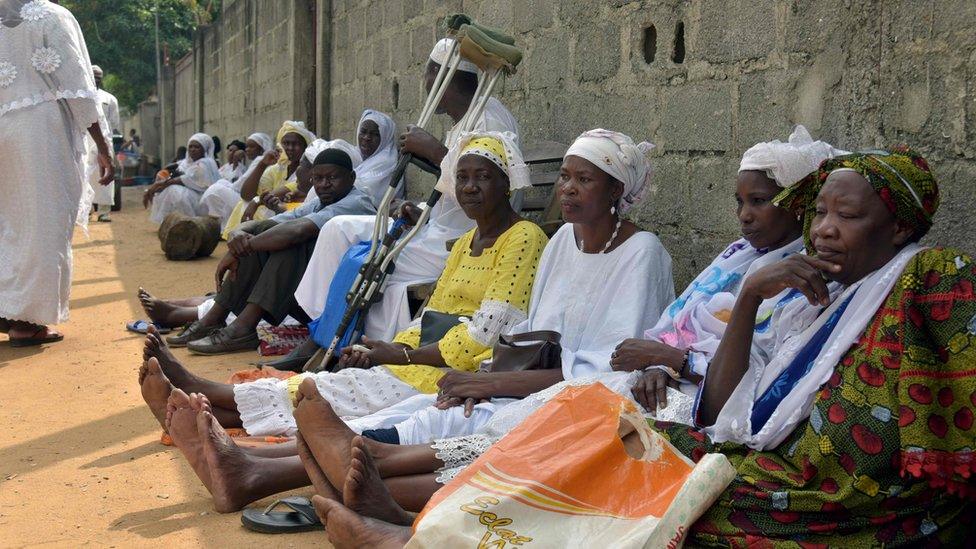
Victims of the 2010 post-election violence are opposed to Mr Gbagbo's release
ICC judges ruled on Tuesday that prosecutors had failed to demonstrate "the existence of a 'common plan' to keep Mr Gbagbo in power" which included crimes against civilians.
Presiding Judge Cuno Tarfusser said the prosecution had also "failed to demonstrate that public speeches by Mr Gbagbo constituted ordering or inducing the alleged crimes".
Is his acquittal a blow to the ICC?
"Whenever a case involving mass atrocities essentially collapses at the ICC, it does damage to the perception of the court as a credible and effective institution of international justice," Mark Kersten, author of Justice in Conflict, told the BBC's Anna Holligan.
"Many are concerned that the court is emerging as an institution where only rebels can be successfully prosecuted," he added.
The prosecution at the ICC has also failed in its attempts to build successful cases against former DR Congo Vice-President Jean-Pierre Bemba, and Kenyan President Uhuru Kenyatta.
On the other hand, the ruling demonstrates the judges' independence and impartiality and makes it harder to push the narrative, popular among those who fear the long arm of the ICC, that the court is a biased weapon of neo-colonial justice used purely to convict African leaders, our correspondent says.
- Published15 January 2019
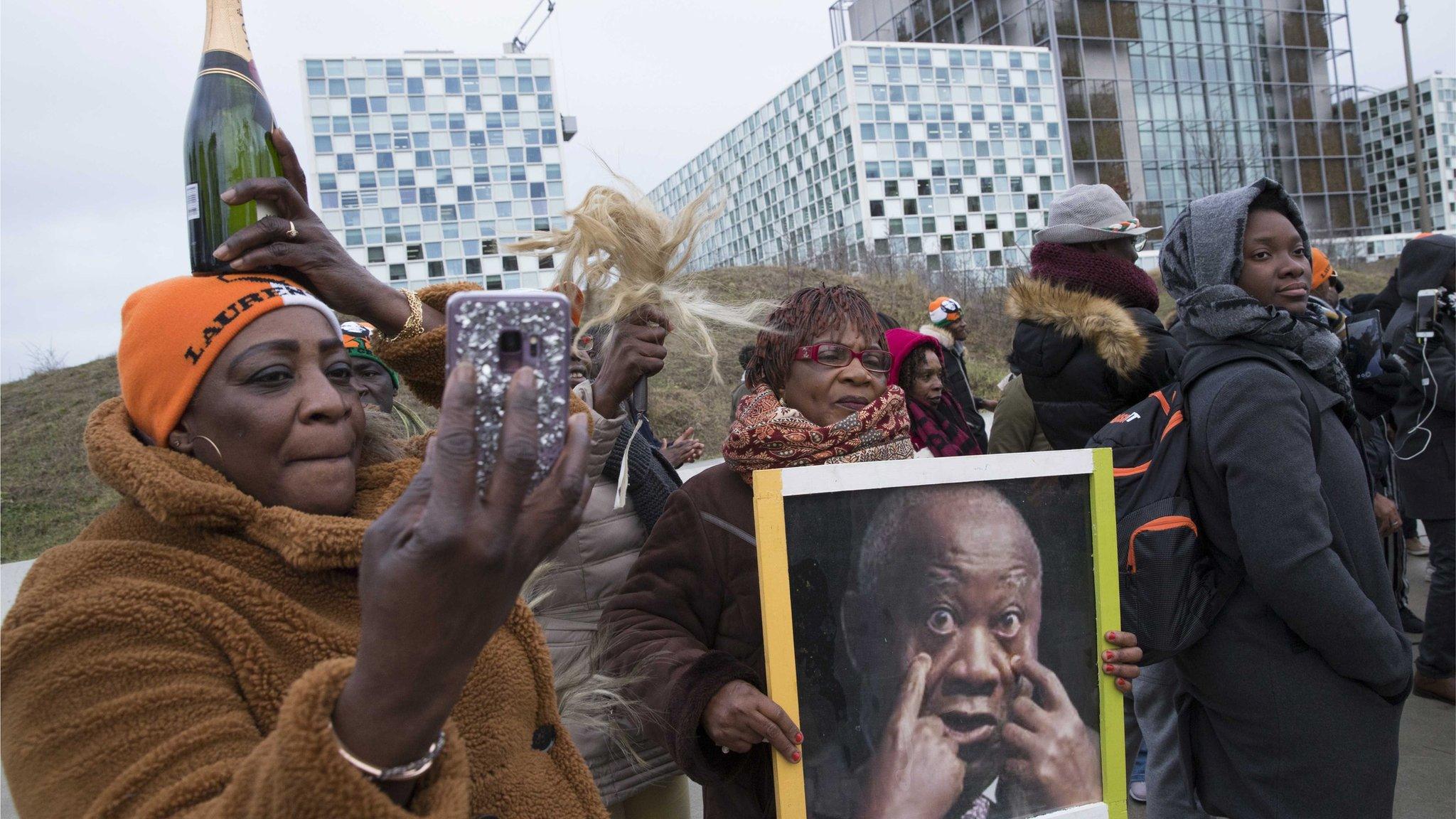
- Published15 January 2019
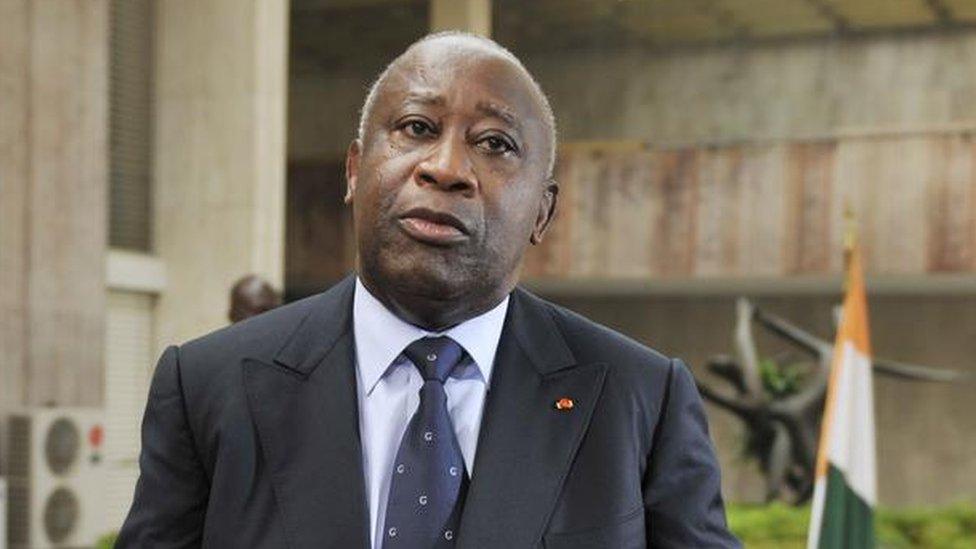
- Published15 January 2019